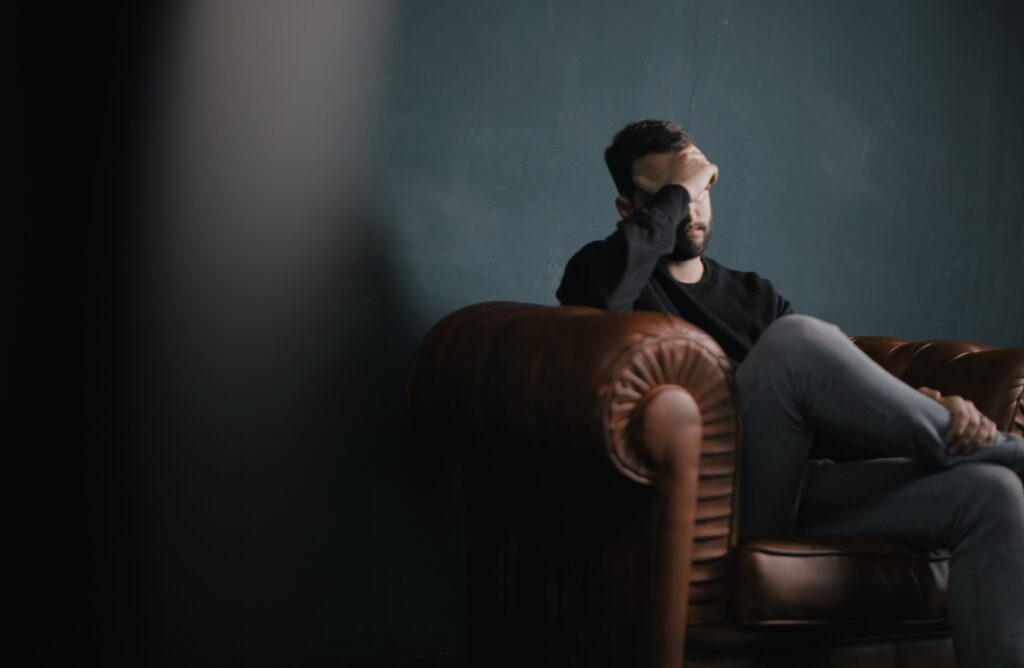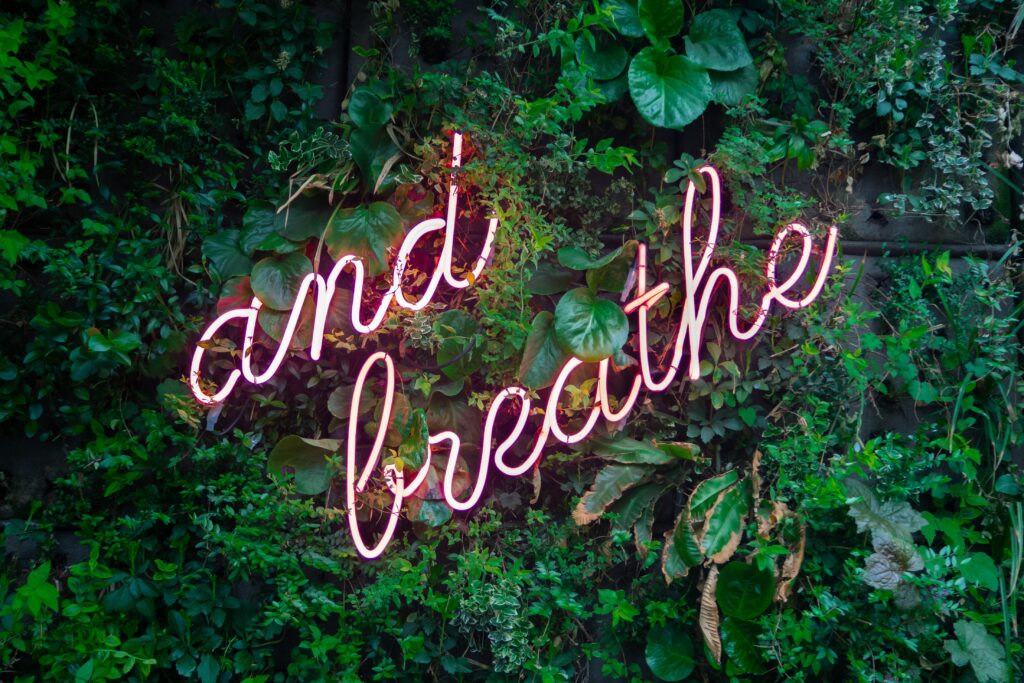Anxiety tips!
As one person puts it, the feeling of anxiety can be like having worms crawling through your brain.
Helpful Tips for People with Anxiety

Overcoming anxiety is not easy, but here are 26 of the top tips to do so that we’ve seen.
1) The first question is, what is causing the anxiety?
It sounds like a simple enough question but finding an answer to it is essential. You may notice that you feel anxious in a certain situation but aren’t sure why. Until you figure out what is going on, you’ll be in the dark.
So, what is causing the anxiety? To figure this out you may have to be creative – and you will also likely have to be honest with yourself.
For instance, a person noticed that they were feeling anxious when they had to take the train, but only on a certain line. Until they thought, “wait, why am I feeling anxious?” and remembered they had a bad experience at one of the stops, they didn’t know what was going on.
2) How can you deal with the anxiety?
What are your options? What can you do to make the anxiety more manageable? By thinking rationally about it and coming up with ideas, you’ll feel more in control and better able to deal with it.
3) Realize or admit that you have anxiety
It can be hard to admit that you have a problem or an issue. But once you identify the problem and are able to think about it in a certain way, you can become resistant to it and better able to deal with it.
Especially with anxiety.
This would be tip #1 because it is so important – but you likely know or suspect you have some anxiety issues, otherwise you wouldn’t be reading this article.
4) See a therapist

If the anxiety is serious enough to cause issues in your life and isn’t getting better, maybe it makes sense to see a therapist. They are trained to help you work through these issues.
5) Exercise on a regular basis
Going to the gym on a regular basis helps you work out your tensions and makes you more relaxed and feel better in general. Exercise can improve your memory, while anxiety is shown to worsen short and long-term memory.
7) Ask yourself questions like: “How likely is it?” and “If it is true, what does it matter?”
An extremely useful technique some people use to deal with stress and anxiety is to ask themselves rationally how likely something is. For instance, let’s say you walk past some people and they laugh. Were they laughing at you?
Two questions can make that moment less stressful. First, “how likely is it?” Be honest – on a scale of one to ten, how likely is it that they were laughing at you?
Second, “And if it is true, what does it matter?”
Even if the random strangers were laughing at you, how much does it matter to you?
8) Cut back on caffeine

Caffeine and other stimulants can make you more anxious or nervous. Cutting back on the amount of caffeine that you consume can help reduce the anxiety you feel if you are consuming a significant amount.
9) Consider medication
There are many medications that help with anxiety. They are strong drugs, however, so their use should be reserved for more serious cases and done under a doctor’s supervision.
10) Talk to a friend
Have a good conversation with a friend. Talking things over with someone can help put them in perspective. Not to mention that studies show that when we spend time with friends, we simply worry less and feel better.
11) Exposure therapy
Very effective treatment for phobias is gradual exposure. Someone who is scared of snakes might think about being 50 feet away from a snake, then think about being 10 feet away from a snake. Then they might imagine seeing a snake, and keep working up until they can handle seeing a real live snake.
Use a similar concept. Expose yourself to whatever it is you are anxious or nervous about and slowly build your tolerance up.
12) Write down your fears

When you write something down, you gain a sense of control over it. The action of putting words to paper of what is bothering you can help reduce its power over you and make you feel better.
13) Listen to music
Listening to music can be very calming and induce relaxation. Different types of music are good for different emotions.
14) Keep busy
Most worrying is done when we aren’t busy. Instead of letting your anxiety control you, be active! Maybe cook something or do an enjoyable hobby if you are at home, for instance.
15) Set a time to worry
Give yourself a set time to worry about things. Say, “I’m going to think about all the things that stress me out and make me anxious from 9 to 9:15.” Doing so is a bit counter intuitive – but for some people works wonders.
16) Think about something positive about the situation

Some of the best humor is macabre in nature. Being able to joke internally about whatever is concerning you can help make it easier to deal with.
17) Think positive thoughts
Force yourself to think positive thoughts. At first, it’ll be a bit awkward and forced, but with time, you’ll think the thoughts automatically. For instance, if you think, “I can do it,” before something that might make you anxious, you’ll soon think that thought automatically.
18) Sexual activity
Engaging in sexual activity, whether alone or with a partner, releases neurological factors that induce calm and pleasure. Sex is a great stress and anxiety reducer.
19) Do Yoga
Yoga gives your whole body a workout while emphasizing breathing and stretches that promote overall health and wellness. It can be extremely good for reducing anxiety and tension.
20) Do deep breathing

Hyperventilation is bad, but practicing controlled, deep breathing can induce a state of calm and relaxation.
21) Take a walk in nature
Return to nature! There is something deeply relaxing for some people in walking through a forest or park, enjoying the natural scenery.
22) Reduce the amount of stress in your life
Figure out ways to make your life have less stress and anxiety in it.
23) Watch something funny
OK, so watching a comedy isn’t going to get rid of your anxiety for good – but it might make you laugh a few times. And laughter helps you feel better and fights stress.
24) Get involved

Start with activities that are social in nature. Spend time with friends. And if you don’t have them, make them! Join social groups, clubs, organizations and get involved.
Maybe consider joining a support group. Or volunteer – you’ll help people, make new friends, and probably feel better about things.
25) Write in a journal
Write a daily journal! It doesn’t have to be restricted to anxiety-related topics, but you can also keep track of how you are doing in dealing with it.
As of recently, studies have linked chronic stress to cancer cell growth. All the more reason to reduce your stress levels as much as possible!
26) Consider supplements
Various anti-anxiety supplements have shown positive effects for patients with anxiety.
Consider Sandy DeRose’s Relax Supplement from DeRose Health.
Sandy has gained much attention for her work on everything from harnessing the life-extending powers of telomeres and balancing women’s hormones, to reversing vitamin deficiencies and slowing the effects of aging.
Derose Health’s Relax Supplement contains several Stress-relieving ingredients.
Most notably, it contains Ashwagandha, which has received lots of attention for its stress-reducing effects.
In one study on Ashwagandha, subjects reported 44% less stress after just 60 days.
In that same study, people saw an average of 73% improvements in physical feelings of:
- stress (low energy, headaches, insomnia, low sex drive)
- problems falling asleep or staying asleep
- feeling comfortable in public/social situations
- severe depression.
Hope this list helped! And if you have your own tip for dealing with anxiety, please leave a comment and let us know.
